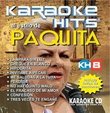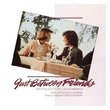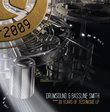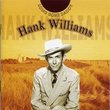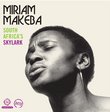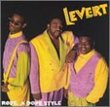| All Artists: Schola Cantorum of Oxford Title: The Peaceable Kingdom, Mass of the Holy Spirit, The Last Invocation, Fare Well, Alleuia Members Wishing: 0 Total Copies: 0 Label: Hyperion Original Release Date: 1/1/2008 Re-Release Date: 10/14/2008 Album Type: Single, Import Genre: Classical Styles: Opera & Classical Vocal, Chamber Music, Historical Periods, Classical (c.1770-1830) Number of Discs: 1 SwapaCD Credits: 1 UPC: 034571176796 |
Search - Schola Cantorum of Oxford :: The Peaceable Kingdom, Mass of the Holy Spirit, The Last Invocation, Fare Well, Alleuia
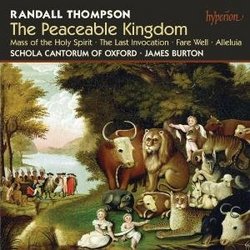 | Schola Cantorum of Oxford The Peaceable Kingdom, Mass of the Holy Spirit, The Last Invocation, Fare Well, Alleuia Genre: Classical
For the past half century the music of Randall Thompson has remained a staple in the choral repertoire. These delightful works are marked by skilful craftsmanship, a pervasive singabbility and uncommon beauty. This new rec... more » |
Larger Image |
CD DetailsSynopsis
Product Description For the past half century the music of Randall Thompson has remained a staple in the choral repertoire. These delightful works are marked by skilful craftsmanship, a pervasive singabbility and uncommon beauty. This new recording features Thompson's The Peaceable Kingdom, based on texts frkom the book of Isaiah , as well as his Mass, The Last Invocation, and Fare Well. Also included is one of Thompson's most popular works, the Alleuia, written at the request of Serge Koussevitsky and premiereed in July 1940, and today a beloved and time-honoured contribution to the choral repertoire. This informative booklet notes are by one of Thompson's most const admirers, teh fellow-American composer Morten Lauridsen. Similar CDs
|
CD ReviewsOverall very good; high points are very high essmac | Nashville, TN USA | 09/17/2009 (5 out of 5 stars) "Ironic: An English group nails the highlights of Peaceable Kingdom-- their sound is a lovely balance between chaste straight choir tone and robustness; unmarred by intrusive vibrato, but not sterile or too 'white'. Warm and full enough (despite their small size, smaller than most groups that do PK) to do justice to Thompson's 8-part harmonies. To my mind, they are the only ones who get the slow sections of PK right- they have the guts to do 'Ye Shall Have a Song' at the slow pace it needs, never going slack or getting mushy, but moving forward in a tingly haze, that wonderful feel that a fine chorus can achieve that seems like religious ecstasy, an inexorable rising and forward propulsion that is less like active driving than it is being lifted up, drawn towards God if you like. A slower tempo also allows us to luxuriate in the radiant multi-part writing that brings tears to your eyes. At least to mine-- it does feel like my heart is swelling when I listen to this section, and after hearing the sample of this movement, I ordered this CD. A fifth star is almost shaved off for the less optimal fast sections-- faster tempi and more incisive rhythm is called for, I think. They need greater sense of drama, more snarl and acting in the voice, which can easily tip over into campiness, but a good group knows when to rein it in and retain appropriateness and good taste. Most groups do this piece with organ backup, if nothing else than to keep the train from going off the rails, as the train can do spectacularly in this piece, or in Thompsons' big hit, "Alleluia" (let's be honest, how many groups, even very professional ones, have you heard sweating blood to keep that damned "Alleluia" in tune?). But the Oxfords fare beautifully with no instrumental backup, rock solid throughout (although, I think I like the fast dramatic sections better with organ, especially 'Howl Ye' for which the organ's timbre is perfectly suited, heightening the gothic lurid imagery). Another small complaint- the high sopranos overbalance, especially in the contrapuntal sections, but that's an issue almost any recording has when there are 8 parts or more and the S1's are stuck in the top of their range for long stretches. To their credit, the Oxford ladies don't splat or become strident in the highest 'gladness of heart' measures (although this is not the case in the 'Last Invocation' which finds them strained in the climactic passages, which are, to be fair, very challenging). But one feels for the altos and basses who bust their asses in the studio and then listen to the recording thinking, well hell I could have stayed home and sung it over the phone. Ah well, always the Florence Ballard, never the Diana Ross, and as you can tell, I am speaking as a veteran of those sections (conductor: "Yes, I need you to sing bass 2 here, then switch to baritone here, jump up and help the altos with these low notes, then hit tenor 1 to help them tune that third before you come back down for the low e flat at the end. And I need a lot from you there." I know you other utility singers know what I am talking about. Like if I had a loud low e-flat after all that, I wouldn't be in that choir, I would be onstage at the Met having a career.) The other pieces are a mixed bag compositionally. They are all within the idiom we are accustomed to from Thompson, and even though they span decades of his life, there is no big stylistic shift. But having been listening to a lot of Whitacre lately, I was struck a few times at the influence Thompson obviously had on him. The opening measure of 'Fare Well' made me think of the opening of Whitacre's amazing 'When David Heard'-- but there are no extended passages of tone clusters or talking in Spanish or snapping of fingers or other such new-fangled things; even in Fare Well, from the end of Thompson's life, it is warmly tonal and straightforward, although with none of the theater of Peaceable Kingdom. The Mass is interesting, if not his best work. There are some inventive sections, especially the Gloria which has extended passages of multi-part melismatic writing under the main theme-- but I find it less effective musically; it just sounded like it was very very hard to learn and execute, more trouble for the singers to cope with than it was worth as a musical effect. But as before, the Oxfords manage it quite well. And while they make a strong case for the unknown works that fill the CD, Peaceable Kingdom is obviously the star attraction, a real masterpiece of American choral writing." Been Looking for years Charles H. Bihler | 11/15/2009 (5 out of 5 stars) "There have been simply NO professional recordings of The Peaceable Kingdom. So it is a pleasure to find a new one that is done with such care and beautiful sound. I am a fan of the work and it has played a big role in the musical development of both my wife and I. Usually done with brisker tempi, this one takes the rather Victorian tempi found in the score. Nevertheless, we love it."
|

 Track Listings (17) - Disc #1
Track Listings (17) - Disc #1

